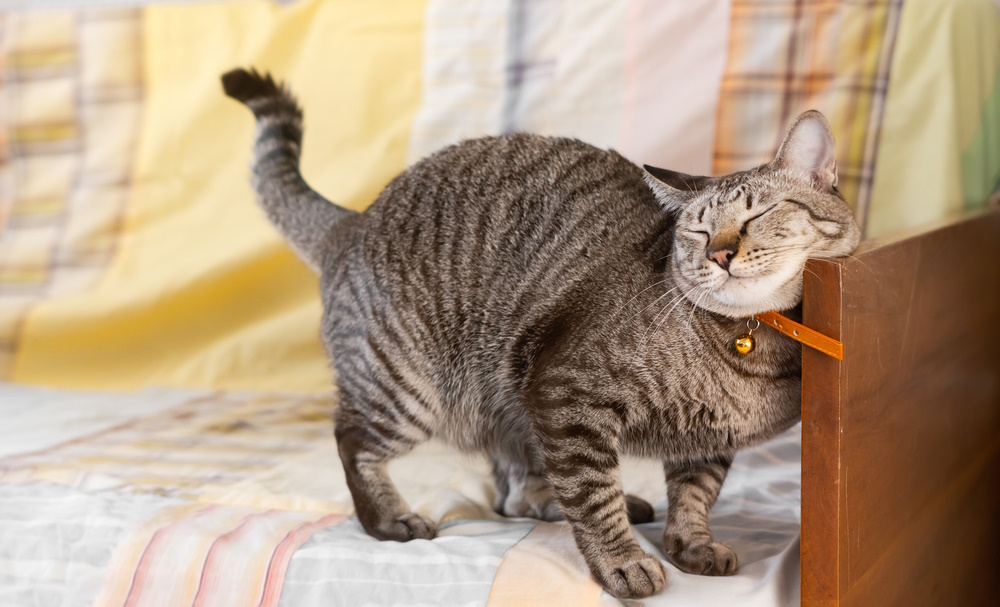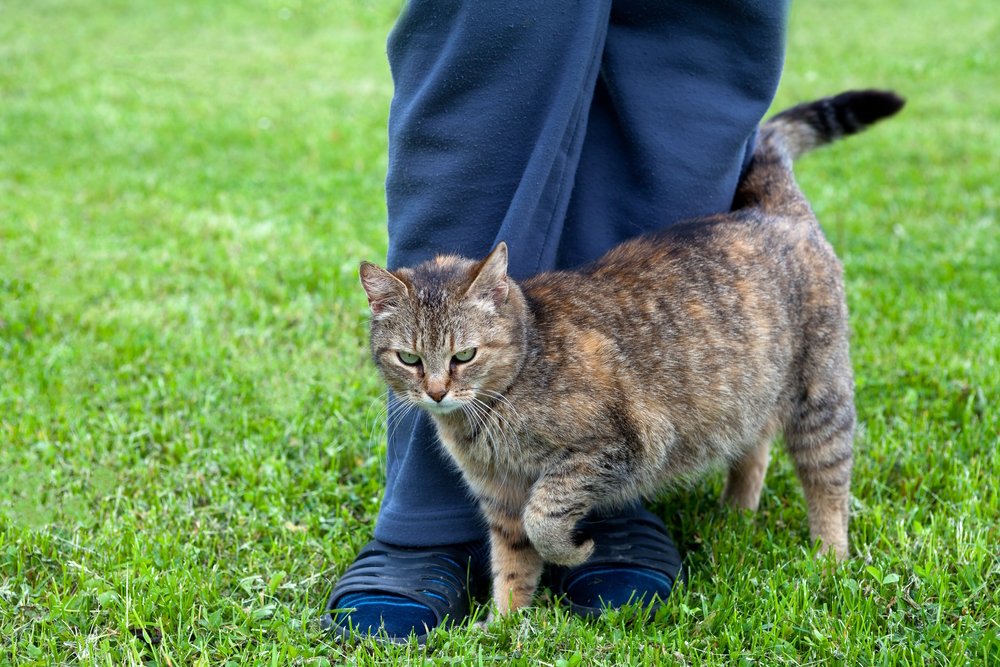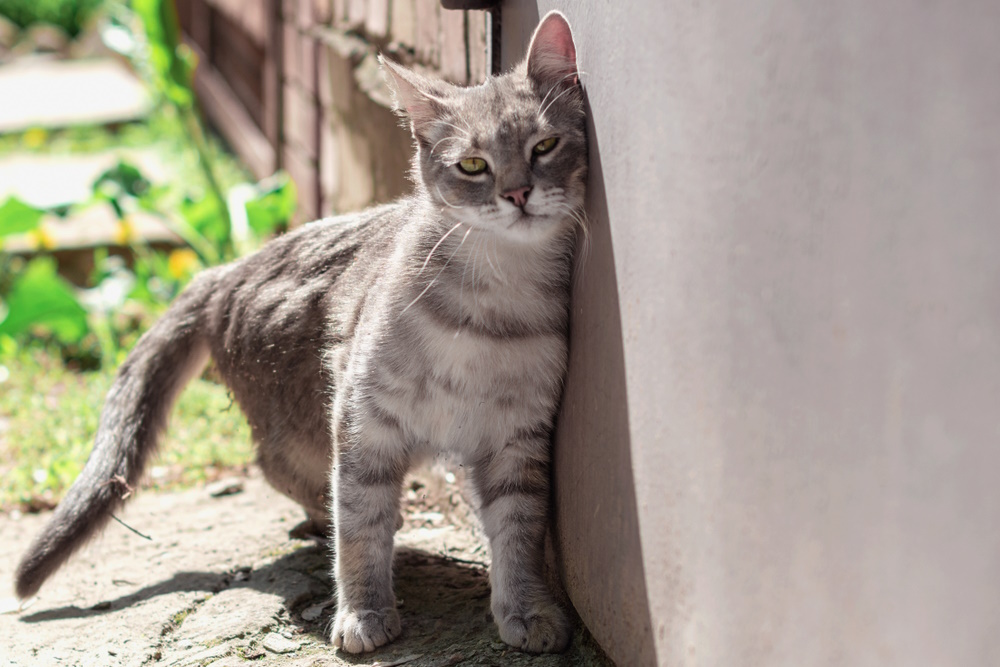Cats often engage in behaviors that leave us bewildered or confused. Although we may find them strange, many of these behaviors are normal for cats. New cat owners may be surprised at how much their cats will rub their faces against corners, objects, and even people. However, this action is common cat behavior, and you usually don’t need to be alarmed by it.
While it’s not entirely certain why cats rub their cheeks at the corners, behaviorists and cat experts share some common guesses. Here are some possible reasons why your cat may be rubbing his face in the corners.


The 5 Reasons Why Cats Rub Their Faces in Corners
1. Marking of Territory
One of the most accepted theories for cats rubbing their faces in corners is that they leave their scent on things. Cats use scents to communicate, and they have scent glands located around their cheeks. When cats rub their faces on things, they leave behind a scent that other cats can detect. Cats can pick up information about other cats when they sniff these scents.
Cats may prefer to rub their cheeks in the corners because the corners provide the best grip for them. Rubbing their faces against flat walls can be more difficult, so they usually choose wall corners and furniture.

2. Greeting
It is common for cats to greet each other by rubbing their faces. This behavior allows them to exchange scents and learn more about each other. If your cat starts to feel comfortable and likes you, she may start rubbing her cheeks with you as soon as you return to them. You can take this as a sign that your cat is greeting you and wants to let you know that he wants you home.
It is important to note that not all cats will engage in this behavior with humans. So, you don’t have to worry too much if your cat doesn’t rub his cheeks against you. They probably show you love and affection through other means and expressions.
3. Wants Attention
Cats are observant animals and quickly learn what kind of behavior gets your attention. Therefore, if you make it a habit to pay attention to your cat when they wave at you, they are more likely to continue this behavior. This behavior is reinforced every time you recognize your cat when they rub their face against you. Because of this, many cats will start rubbing their cheeks against their owners when they are bored, hungry, or sad.

4. Showing Love
Your cat may also rub their cheeks against you as a way of showing affection. Similar to marking territory, cats leave their scent on humans by rubbing their cheeks against them. Instead of viewing it as ownership, you can take this behavior as a compliment. Cats won’t rub their cheeks on people they don’t trust or don’t like. So, you can take it as a sign that your cat likes you and sees you as one of them if they start rubbing their cheeks against you.
5. Stress Reliever
The act of rubbing faces against something is often comforting and relaxing for cats. So, they may engage in this behavior when they want to relax or self-soothe. Sometimes, cats will start rubbing their faces against something when they feel anxious or stressed and want to calm down.
Cats also usually start rubbing their cheeks on things once they’ve settled in and become comfortable in a home. In this context, you can take this behavior as a good sign that your cat recognizes that your home is their home too.

Is It Bad If My Cat Rubs Their Faces On Everything?
While rubbing faces on objects and people is common behavior in cats, there are some cases when it can indicate an underlying problem. Sometimes, rubbing faces can become a compulsive behavior, often caused by an illness or mental health issue. For example, cats may begin to rub their faces and press their heads against objects repeatedly when they have head or nervous system trauma, encephalitis, or tumors. Cats may also use compulsive head pressing if they are under a lot of stress or anxiety.
Compulsive behavior of this type is also often accompanied by other signs. Your cat may also exhibit increased pacing or circling. They may also be disoriented or lack coordination. Sometimes, you may notice sudden changes in mood or behavior.
If you suspect your cat’s behavior is abnormal, it is best to contact your veterinarian immediately for a physical examination. Your veterinarian can diagnose the cause of the behavior and provide appropriate treatment.


Conclusion
For the most part, you don’t have to worry if your cat rubs its face on corners and other things. In fact, you might take it as a compliment if your cat starts rubbing her cheeks against you. If you notice that your cat is starting to rub its face on objects more often or notice other changes in their behavior, do not hesitate to consult your veterinarian to determine what is causing these this change.
Featured Image Credit: Maria Wan, Shutterstock


